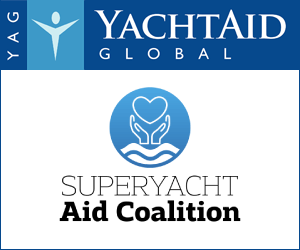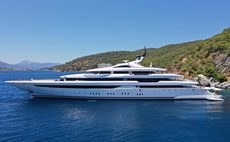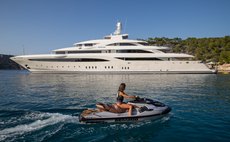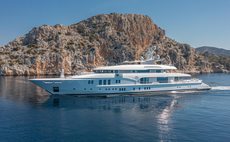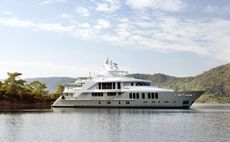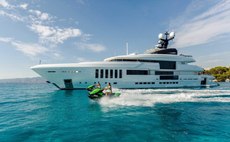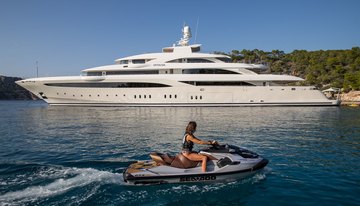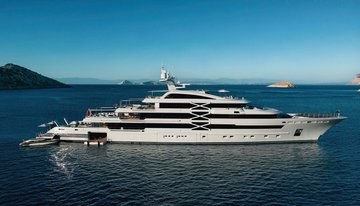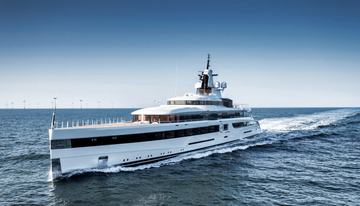In this article:
A charter contract is a comprehensive and legally binding document designed to protect both the charterer and the yacht owner, which sets out the rights and obligations for both parties. The standard yacht charter contract has been developed and amended over the years to cover as many eventualities as possible, and has proved a fair and equitable agreement for all parties involved.
All yacht charter contracts will include the following details;
- Yacht name
- Start and end ports
- Charter duration
- Maximum number of guests sleeping and cruising
- Cancellation policies
- Safety
- Payment structure
- Crew level
- Gratuities
- Insurance details
For most standard yacht charter contracts the following items are typically inclusive of the base charter fee;
- Hire of the yacht, including all water toys and equipment (in full working order)
- Wages and food of the crew for the duration of the charter
- Ship’s laundry
- Insurance cover for marine risk and third party claims
The main differences in terms of expenses between the various contract agreements tend to be whether or not they include food or fuel.
It is essential that charterers have a full understanding of the yacht charter contract and how they will be affected by it, therefore they should take the time to read it and familiarise themselves with the content.
It is important to speak up should you have any questions regarding the contract or are unsure as to how the payment structure is applied or how costs are calculated.
Yacht charter brokers are experts in this field and very familiar with the different types of yacht charter contracts used, and will be happy to discuss any queries you have or clarify any complex terms or clauses, so don’t be afraid to ask.
The contract used is typically specified by the yacht and the choice of contract can be influenced by the size of vessel and location within which it is operating.
There are a number of standard contracts used by the yachting industry. The most common ones are;
- Mediterranean Yacht Brokers Association terms (MYBA)
- Caribbean Terms Inclusive (CTI) and
- Standard Eastern Mediterranean Terms (SEMT)
Most yacht charters operate using MYBA terms, which is the industry standard that has been adopted worldwide.
MYBA – the Worldwide Yachting Association – developed their MYBA terms (formerly known as Western Mediterranean Terms) in conjunction with industry professionals, such as coastguards, lawyers and the International Maritime Organisation (IMO), and has since become the gold standard for yacht charter contracts globally.
Often referred to as a "plus all expenses" agreement, under the terms of a MYBA contract expenses such as food and drinks for the guests, fuel (including for main engines, tenders and jet skis), personal laundry, communication costs and berthing fees are charged on top of the base charter fee.
This may seem unfair at first glance, however this provides for an à la carte approach for guests, where only expenses incurred during a yacht charter are charged at cost with no mark-up. This makes sense in places like the Mediterranean which boasts an abundance of spectacular dining options, including myriad Michelin-Starred restaurants, where guests will regularly eat ashore.
In order to make the payment structure coherent for guests, the additional expenses for the charter party will generally be covered by the APA, paid from an escrow acccount set up prior to embarking, and often equates to approximately 25-30 percent of the base charter fee.
For more in-depth information about the APA and costs in general, please read the guide below, which offers a comprehensive breakdown of the costs involved on a yacht charter.
Caribbean Terms Inclusive are also commonly used within the charter industry, particularly for smaller vessels venturing to the Caribbean. Also known as Standard Caribbean Terms, CTI terms are often described as “mostly all-inclusive”.
As well as the items included in the base charter fee outlined above, CTI terms also generally include the following:
- Three meals per day
- Fuel for four hours of cruising per day
Some drinks may be included, however premium beverages such as expensive wines and Champagne will be charged as an additional expense. Further fuel costs will also be applicable over the four hours (including for tenders and jet skis etc.), plus berthing fees and communication costs.
Although MYBA and CTI are the most commonly used contract terms, there are other yacht contracts which charterers may come across when booking a yacht rental, which are often dependent on the size of the yacht and where the yacht is travelling to.
As the title suggests, this type of contract is generally only used for yacht charters around the East Mediterranean, and operates much the same conditions as CTI, however where CTI covers three daily meals, SEMT will only provide breakfast and lunch on the basis that guests are likely to eat ashore most evenings. These terms also include harbour and berthing fees.
The charterer will be required to cover any additional fuel costs, food (evening meal), beverages, personal laundry, communication costs and any berthing fees outside the agreed cruising area.
National and/or local taxes may also be applicable.
Greek Terms are sometimes used for smaller yachts chartering around Greece and operate in much the same way as MYBA terms, with the exception of harbour and berthing fees within Greek waters which are included under the GT agreement.
Addendums are used to add terms or make changes to a contract without invalidating the original document, for example changing the yacht charter location after the contract has been finalised.
Addendums can grant a certain amount of flexibility when negotiating terms between the charter broker and the yacht owner or their management company, and must be agreed and signed by both parties, as well as the yacht charter broker.
During 2020-2022, COVID-19 affected all areas of commerce worldwide, and luxury yacht charters were no exception. Despite the recent relaxation of rules, the number of cancellations incurred as a result of the pandemic acted as a wake-up call for the industry, as well as yacht brokers and their prospective charter clients.
Owners understand the need for some assurances when booking a yacht charter and will generally allow an addendum to be added to the charter contract that includes penalty-free cancellation and postponement policies, subject to terms.
These can greatly alleviate concerns for anyone looking to book a yacht charter during times of uncertainty.
All MYBA agreements now include a special addendum to their charter contract which stipulates that in the event of any COVID-19 issues arising before the charter commences the following will take place. Either;
- A change of charter destination
- Rescheduling of the charter, or
- Penalty-free Cancellation
Failing agreement of the first two points, the yacht charter will be cancelled and charterers will be entitled to a full refund without incurring any penalties.
There is a standard hurricane addendum that can be added to basic charter contracts which allows charterers to reschedule if a storm has been named and heading towards their planned destination within 48 hours of the start of the charter.
For anyone planning a yacht charter during the hurricane season, your broker will likely advise the purchase of additional cancellation insurance to cover all bases and provide some peace of mind.
Whether you are a celebrity or not, non-disclosure agreements are fairly standard when it comes to chartering a luxury yacht. Everyone has the right to privacy and yacht crew are well-versed in matters of discretion when it comes to welcoming new guests on board.
The terms of the non-disclosure agreement can be agreed upon between the yacht charter broker and yacht owner prior to commencement of the charter.
In general terms there are two types of cancellation;
- As a result of a force majeure event
- Cancellation for any reason
Force majeure
Only owners have the right to cancel a yacht charter for reasons of force majeure, for which there exists no legal definition but is understood to mean "unforeseeable circumstances that prevent someone from fulfilling a contract". It should be noted that the cause of cancellation must be directly attributable to the unforeseen event.
If this happens, the charterer is entitled to a full refund of any monies paid to date. Alternatively, both parties have the option to mutually agree to an extension of the yacht charter equivalent to the time lost, or postponement to a later date.
Cancellation for any other reason
If the owner cancels the charter for reasons other than a force majeure event then the charterer shall be entitled to a full refund of any monies paid, plus damages based on a percentage of the charter fee dependent on the proximity to commencement of the yacht charter.
If a charterer cancels then they are deemed to have repudiated the contract, whereby the owner may withhold any payments already made, as well as recover any further sums due.
Owner's obligation
Where a cancellation has been made by the charterer, an owner has an obligation to try and mitigate this loss by re-letting their yacht. If successful, any excess funds, less expenses, shall be reimbursed to the original charterer up to the amount already paid on account.
Each case will be different so you'll need to check your contract with your yacht charter broker to ensure you are happy with the terms set out.
For more information speak with your yacht charter broker, who will be happy to answer any queries you may have on chartering a luxury yacht.
Please visit our advice pages covering a wide range of useful information and helpful advice on booking a private luxury yacht charter. We have listed some you may find useful for getting started when planning your luxury yacht charter vacation.
Related advice articles
















